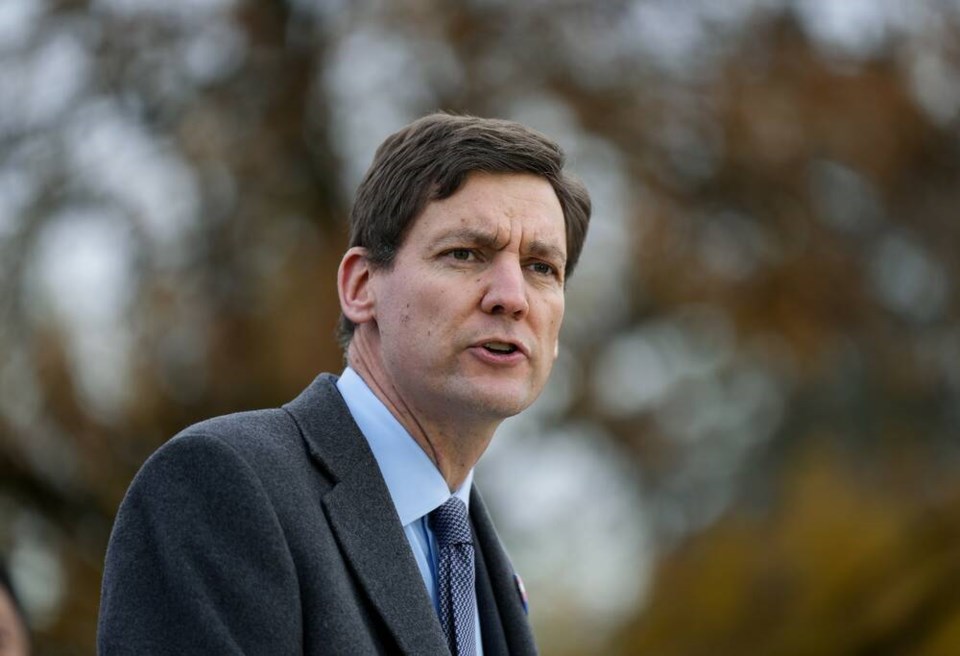Early in his career as attorney general, one of David Eby’s top priorities was to continue the crusade he started as an opposition critic speaking out against money laundering.
He got a briefing on the topic soon after being sworn in following the NDP takeover from the B.C. Liberals in 2017. He relished sharing a quote from one of the officials that vindicated his priority:
“What we’re going to tell is going to blow your mind.”
He shared that widely with the media. When he appeared before the House of Commons finance committee in 2018 to pursue the issue, it was the first thing he said.
“It was one of my first days as minister. … I was briefed by a regulator. … The first words that I heard were: ‘I think we are going to blow your mind.’
“Mr. Chair, I can say that my mind was, indeed, blown.”
Five years later, it’s my mind that is blown — over the system’s failure to bring even one person to court, let alone make charges stick against people still cleaning dirty money with impunity.
Eby does get some credit for curbing the flow. (So does continuous media exposure.) The astonishing money laundromat process in casinos was ebbing by the time the NDP took over. He staunched it further, by launching an investigation by expert Peter German. Then he acted on ideas to demand source of funds proof at casinos and create a new ownership registry for real estate.
There was also an inquiry commission led by Justice Austin Cullen that reported last summer with lots more ideas.
They are largely bureaucratic approaches. Cullen recommended changes to the useless federal suspicious funds tracking system and creation of new offices in B.C. He suggested more special police units and urged them to do a better job tackling the problem.
But many of the ideas involve continuing to work within a model that was conclusively shown last week to be a complete failure.
A marquee assault on money laundering that was aimed at throwing one of the suspected masterminds in jail crashed and burned, despite Eby’s desperate bid to salvage it.
Code-named E-Nationalize, it was the second major flop in a row. A similar monumentally expensive police investigation (E-Pirate) collapsed in 2019 due to a catastrophic botch by the RCMP that has never been fully explained. It was partially revealed by the Vancouver Sun’s Kim Bolan.
The second collapse only became fully apparent last week, when independent special prosecutor Chris Considine’s report was released.
Police working on E-Nationalize recommended charges but the B.C. Prosecution Service decided in 2021 not to take the case to court because there was no substantial likelihood of conviction.
Eby took the unusual step of ordering an independent review. Considine took an exhaustive look over a year and last week it was revealed he concluded the same thing.
For a number of legal reasons, he found that the mountain of evidence compiled by police was not worth putting to a judge because the case is virtually unwinnable.
Money laundering by definition involves dirty, criminal funds. But the law requires proof the money is dirty and it’s almost impossible to establish that the origins of all the transactions, many of them off-shore, are criminal.
So the only severe penalty in the money-laundering racket now is that every once in a while the people involved tend to shoot one another.
Current B.C. Attorney General Niki Sharma said the abandonment of the huge case was frustrating, but said government “is constantly improving our ability to go after money-laundering.
“There’s a whole team … constantly working on investigating, charging and assessing cases.”
After tracking the last two big cases, the question is, why do they bother?
She stressed civil forfeiture as a line of attack, where proceeds are seized without the need for a criminal trial.
But that’s not rounding up money launderers and throwing them in jail. That’s just taking a cut.
Giving up a house or a Lamborghini or two is just a routine business expense, given the volume of cash being processed.
Cullen said B.C.’s civil forfeiture amounts were “shockingly low,” a paltry $10 million to $13 million, during the years in question.
The forfeiture office may be strengthened and millions more dollars could be grabbed, but it is still just an end-run around a Criminal Code that needs a rewrite.
Eby told that federal finance committee five years ago he was “astounded” there were no charges or tax prosecutions during a decade of rampant money laundering.
He should be astounded that is still the case today, after his term on watch.
>>> To comment on this article, write a letter to the editor: [email protected]




